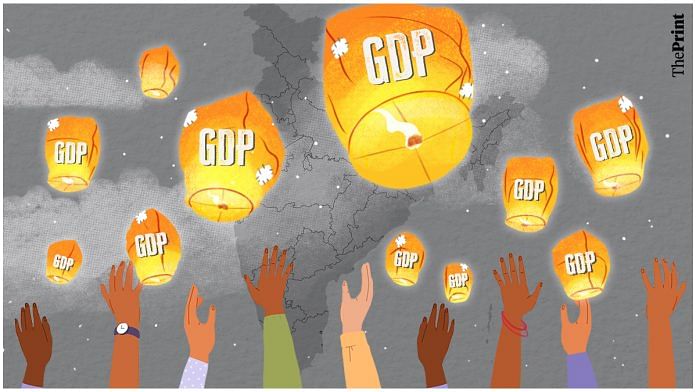As India moves rapidly toward becoming the world’s third-largest economy, its public policy choices will determine whether this growth translates into inclusive and sustainable development. A key challenge lies in balancing welfare provisioning with capability building. While entitlements have served a political and social purpose, the time has come to reassess whether they are enough to deliver the vision of Viksit Bharat by 2047.
Entitlement-driven policies guarantee citizens access to goods, services, or benefits, often with minimal conditionality. From food subsidies and free electricity to income transfers and reservations that many state governments are now resorting to, these policies offer immediate relief and political visibility. But they also risk cultivating dependency, distorting incentives, and burdening the exchequer.
In contrast, empowerment-based policies aim to enhance individual and community capacity. They focus on providing education, health care, skills, infrastructure, and credit—tools that enable citizens to improve their lives through their own agency. These policies are long-term in orientation, often less visible in the short run, but critical for building sustainable systems.
The distinction is not merely philosophical; it reflects divergent models of development—one that views the state as a provider of goods, and another that sees it as a facilitator of human potential.
Lessons from global experience
International experiences illustrate how the choice between entitlement and empowerment can shape national trajectories. Venezuela, once Latin America’s most prosperous economy, adopted a heavily entitlement-oriented approach during the early 2000s. Buoyed by oil revenues, the state expanded subsidies across fuel, food, housing, and utilities. Income transfers increased, and populist programmes proliferated without parallel investments in governance or productivity.
While this bought temporary popularity, it weakened economic fundamentals and bred systemic inefficiencies. When oil prices dropped, Venezuela entered a spiral of hyperinflation, institutional breakdown, and humanitarian crisis. The entitlement model, unmoored from accountability or sustainability, proved catastrophic.
In contrast, Rwanda adopted an empowerment-oriented approach through its Vision Umurenge Program (VUP), integrating social protection with productivity enhancement to accelerate the country’s socio-economic transformation. Public works programmes were designed to create local assets, while targeted transfers were linked to skilling, access to finance, and behavioural incentives. Local governance institutions were central to planning and monitoring, ensuring accountability and contextual relevance.
Despite limited resources, Rwanda recorded significant improvements in poverty reduction, health outcomes, and education indicators. The model focused less on provisioning and more on building resilience, showing that empowerment is viable even in low-income contexts.
Also read: Indian think tanks are growing in big numbers under Modi. But impact, influence questionable
India’s crossroads
India’s welfare architecture has historically leaned toward entitlements, often shaped by redistributive politics. From subsidised food and farm waivers to direct benefit transfers, the state has sought to alleviate poverty through income and consumption support. While these have addressed immediate needs, they have not always translated into structural empowerment.
Moreover, this culture of entitlement now extends beyond traditional welfare. It influences workplace expectations—such as demands for permanent remote work in some private sectors—and governance, with public sector employees seeking greater comfort and protection rather than productivity-linked outcomes. Affirmative action, too, has increasingly revolved around access rather than capability building.
As India aspires to become Viksit Bharat, it must revisit this orientation. Growth alone will not ensure inclusion. The real test is whether policies enable people to participate in and contribute to this growth, reflecting the true spirit of janbhagidari (people’s participation).
Also read:
Reframing public policy
To strike a balance between equity and efficiency, India needs to view welfare as a transition platform—one that protects the vulnerable while enabling upward mobility. This requires a shift in focus from inputs to outcomes and from provisioning to participation.
Empowerment must begin with investments in quality education, healthcare, and skilling—core enablers of human capital. Social protection programmes should be designed to move people toward self-reliance, with targeted, conditional, and time-bound entitlements linked to capability development. Local governance structures must be strengthened to contextualise implementation and ensure accountability.
Technology and data systems should underpin the delivery of services, ensuring that benefits reach the intended recipients while enabling convergence across schemes. Fragmented programmes can be integrated to provide holistic development pathways rather than isolated interventions.
India’s path to Viksit Bharat requires more than just expanding the GDP. It demands a citizenry that is empowered, productive, and engaged. This will not come from a policy regime rooted solely in entitlements. Instead, it will require recalibrating public policy to foster initiative, build capacity, and promote dignity.
Empowerment does not mean withdrawing support but redesigning it to be enabling rather than dependency-inducing. Entitlements have a role—but they must be strategic, time-bound, and outcome-linked. A balanced model that blends social security with productivity, inclusion with innovation, and rights with responsibility will ensure that India’s growth is both inclusive and sustainable.
Dr R Balasubramaniam is a development scholar and public policy advocate. He is currently the Member-HR of the Capacity Building Commission, Govt of India. Views are personal.
(Edited by Zoya Bhatti)




